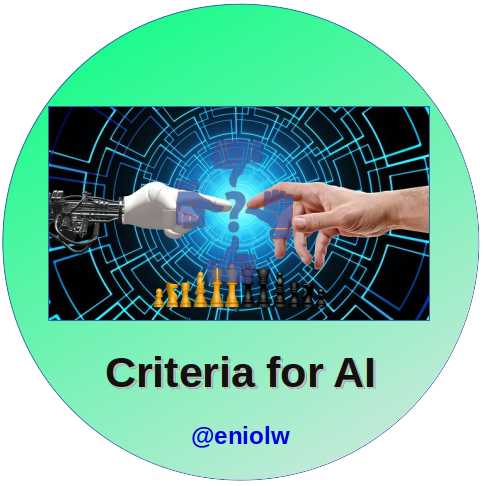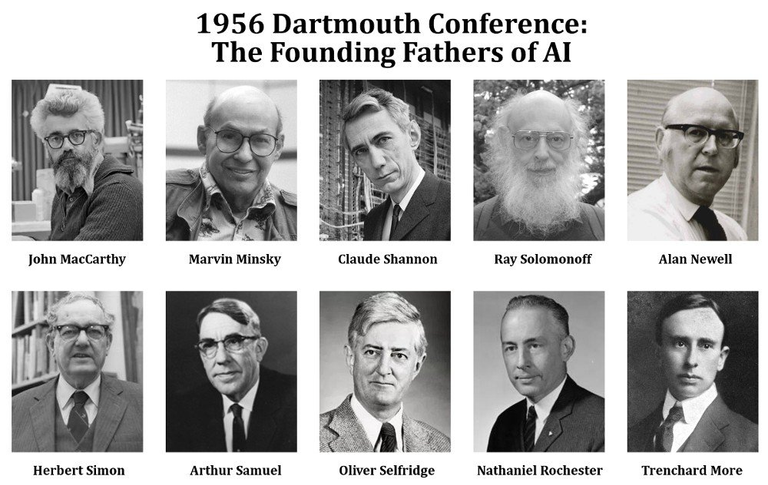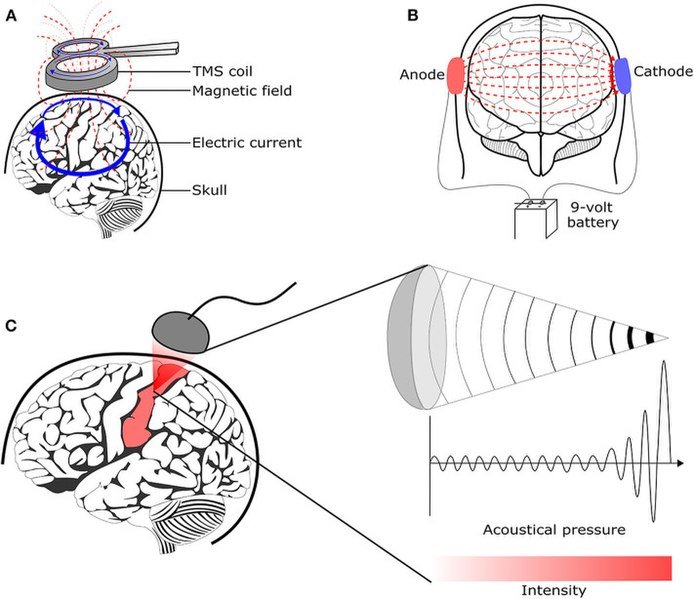Reacting to THE WAR: Debunking 'AI' - Part 2.1

Intro
I recently had a brief exchange with @lighteye, who mentioned me in his article Mate in 19!? In the comments he invited me to examine a series of posts he has previously published that he entitled THE WAR: Debunking 'AI'. The title is partially self-explanatory, but it is only after reading the text that one better understands his views. Hence I invite you to read his posts and contrast your opinion on the matter.
I've already accepted LightEye's invitation as I reacted to the first post of his series here and here. Now I will react to his second article entitled THE WAR: Debunking ‘AI’ – Criteria of a genuine AI (Part II of III). I will go through his ideas mostly in the order of his paragraphs, quoting verbatim to better represent him.
I hope that with this reaction the curious readers can learn a little more, clear their doubts and continue to form an educated opinion on the topic. Let's begin.
"Debunking ‘AI’ – Criteria of a genuine AI" Debunked - Part 1
In the first part of the series on artificial intelligence, we explained that developed expert systems are not really intelligent, on the example of chess, and that the famous ‘AI’ is just a label. (LightEye.)
The truth is that the example provided by LightEye last time was not an expert system, but a chess analysis engine, in this case, Stockfish. This program is not based on a database of predefined solutions, as suggested, but uses algorithms and neural networks to search and evaluate positions and moves.
Furthermore, an expert system is an application of Artificial Intelligence, which is a field of research and engineering. The author (aka LightEye) seems to ignore that a subset is part of the set to which it belongs.
Regarding the 'AI label', well, all concepts have a label, a word that represents them. We saw that Artificial Intelligence describes a field of research and engineering and is a name that originated within academia, from the very pioneers of that field.

⬆️ The experts and founding fathers of AI (picture: Attributed to scienceabc.com)
However, I think the author uses 'label' in a derogatory way, as if denying that it is intelligent. The problem is that on that occasion, the author did not give a definition of intelligence, either conceptual or operational, so his argument was arbitrary. It seems that now he does want to define intelligence.
Finally, we saw that Stockfish is considered an artificial intelligence program for several reasons, including its ability to solve chess game problems and its implementation of a mathematical and technological model called NNUE.
Today we will discuss various criteria a machine should meet in order to truly be considered artificial intelligence… (LightEye.)
Okay, let's take a look. What would be welcome is the appreciation of specialized literature and expertise. In the first article we saw that the author resorted to value judgments with philosophical reflections and opinions of his own, which are perfectly valid, but he also made judgments of factual knowledge that do not correspond to reality and were not supported by accredited sources.
If you want to learn a little more about AI definitions and criteria you can consult this basic article from IBM, for example.
The first criterion is very simple: As long as there is a cable that you can pull out and turn off the machine, there is no artificial intelligence. (LightEye.)
This argument is a huge oversimplification, if not satire. It assumes that intelligence can only exist if it does not depend on wires. What does that mean? The author does not make it clear.
Does it mean that there are factors that limit intelligence? Well, that also happens in biological intelligence. A stroke can severely affect a person's cognitive ability and simple hypotension can cause dizziness, confusion and loss of consciousness.
Furthermore, to focus on the external aspect (in this case, the wiring that powers the machine) is to ignore the ability to process information, learn and solve problems. This argument does not evaluate intelligence itself, but the physical support on which it depends.
On the other hand, if it means that the machine that generates intelligence should not use electricity, that is to ignore how the brain, the "machine" that produces biological intelligence in animals such as humans, works. Brain cells communicate by electrical impulses, yes, electricity. The brain consumes about 20% of the total energy of the human body and generates enough power to illuminate an energy-saving light bulb.

⬆️ Brain stimulation methods to reduce the seizure symptoms. Being an organ that works with electrical impulses, it is not surprising that electricity is used in the treatment of its injuries (picture: Wikimedia Commons)
Let's continue reading LightEye:
Intelligence implies self-awareness and self-sufficiency. (LightEye.)
We will soon see how LightEye further explains these two criteria. However, we can concede that these are more serious criteria for trying to demarcate intelligence, but we will also see that they are not sufficient and universal. Let's see:
Self-awareness, as awareness of one’s own existence, is the easiest to simulate through an extensive expert system. That’s your GPT Chatbot. (LightEye.)
First of all, I would not be so sure that ChatGPT is aware of its own existence and I am inclined to think that, as LightEye says, ChatGPT simulates, or rather, appears to be aware. ChatGPT is a language model. It is very sophisticated, but its behind-the-scenes mechanism reveals that it relies on predicting the most appropriate words in a given situation using statistics and other rules.
Secondly, both Intelligence and Self-Awareness (Consciousness) are two heavyweight terms in the specialized literature. In fact, the only sure thing is that there is no universally applicable and agreed-upon definition of these processes. Things are not as simple as stated in LightEye's article.
Indeed, Consciousness, like intelligence, has no definitive definition or demarcation and has been the subject of debate for centuries, being studied by philosophers and scientists of all kinds. We know that it is a physical process (despite dualists' claims to the contrary), but unlike universal gravitation, we do not have a formula that predicts it and describes consciousness with similar fidelity.
What LightEye (and other commentators) is probably referring to is human intelligence and human consciousness. This is having an anthropomorphic perspective, where the human being is taken as the reference.
We humans assume that we are conscious and intelligent. We have reasons and empirical evidence to attribute these qualities to ourselves. Nevertheless, there are philosophical positions such as Solipsism, according to which a human being can only be sure of his own existence and consciousness, but cannot be sure of the existence of everything else, including the consciousness of other human beings.
The philosophy of solipsism has intrigued the pioneers of artificial intelligence such as Alan Turing himself, who in his famous article Computer Machinery and Intelligence raised solipsism as a possible obstacle to create a thinking machine and his doubts are still valid today: we do not know if consciousness is a necessary condition for human-like intelligence. If you want to know more about this topic, you can read what I have written about it here.

⬆️ The Turing Test and Machine Intelligence (part I)
Therefore, it seems to me that the statement "Intelligence implies self-awareness" and that's it is just blithe.
The anthropomorphic perspective (taking the human being as a reference) is very useful, and that is why there are AI approaches such as those proposed by Stuart Russell and Peter Norvig: a) Systems that think like humans and b) Systems that act like humans.
This is conducive to research and development, but we should not limit ourselves to this and experts in the field are aware of this. Humans do not have to be the pinnacle of consciousness and intelligence. There may be other entities that show different degrees of consciousness and intelligence, either higher or lower than humans.
In fact, in the specialized literature there are references to animal intelligence, plant intelligence and the intelligence of other organisms.
For example, we know that there are other animals that are capable of recognizing themselves in the mirror, exhibit sophisticated behaviors that we thought only humans possessed. They possess complex nervous systems that allow them to experience emotions, to be sentient beings and to have psychological problems.
Not only that, we know that other simpler organisms such as molds and bacteria can also solve certain problems and not just by chance. They definitely sense environmental information and act accordingly to achieve a goal. Although these molds do not have a nervous system and cannot recognize themselves in a mirror, it can be argued that they exhibit a certain level of intelligence.
As we can see, the fact that these organisms do not exhibit a degree of anthropomorphic consciousness does not mean that they do not exhibit some degree of intelligence. These forms of intelligence basically have in common an ability to solve problems by applying different strategies, such as exploration, cooperation, competition, etc., so that may be the most essential criterion for demarcating intelligence.
As for the other side of the spectrum, we do not yet know of entities that are 'more conscious' and 'more intelligent' than homo sapiens. However, it is likely that any individual will meet a peer who is more intelligent than himself, which implies that there is not necessarily an upper limit.
Higher-than-human intelligence has been called Superintelligence, and it is theorized that artificial intelligence may one day reach that level.
It has also been speculated that other extraterrestrial species and civilizations may have reached this level of intelligence and consciousness. They may experience things that we cannot imagine or categorize. Extraterrestrial superintelligence is one of the hypothesized explanations for why we have not made contact with other civilizations. It is as popularizers like Michio Kaku or Neil DeGrasse Tyson say: "we could be like ants to them, so they have no interest in talking to us".
In the next installment we will continue to address the criteria that in LightEye's opinion an Artificial Intelligence should possess, such as self-sufficiency, curiosity and others.
Notes
- Most of the sources used for this article have been referenced between the lines.
- Unless otherwise noted, the images in this article are in the public domain or are mine.
Thanks for your contribution to the STEMsocial community. Feel free to join us on discord to get to know the rest of us!
Please consider delegating to the @stemsocial account (85% of the curation rewards are returned).
You may also include @stemsocial as a beneficiary of the rewards of this post to get a stronger support.